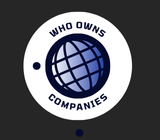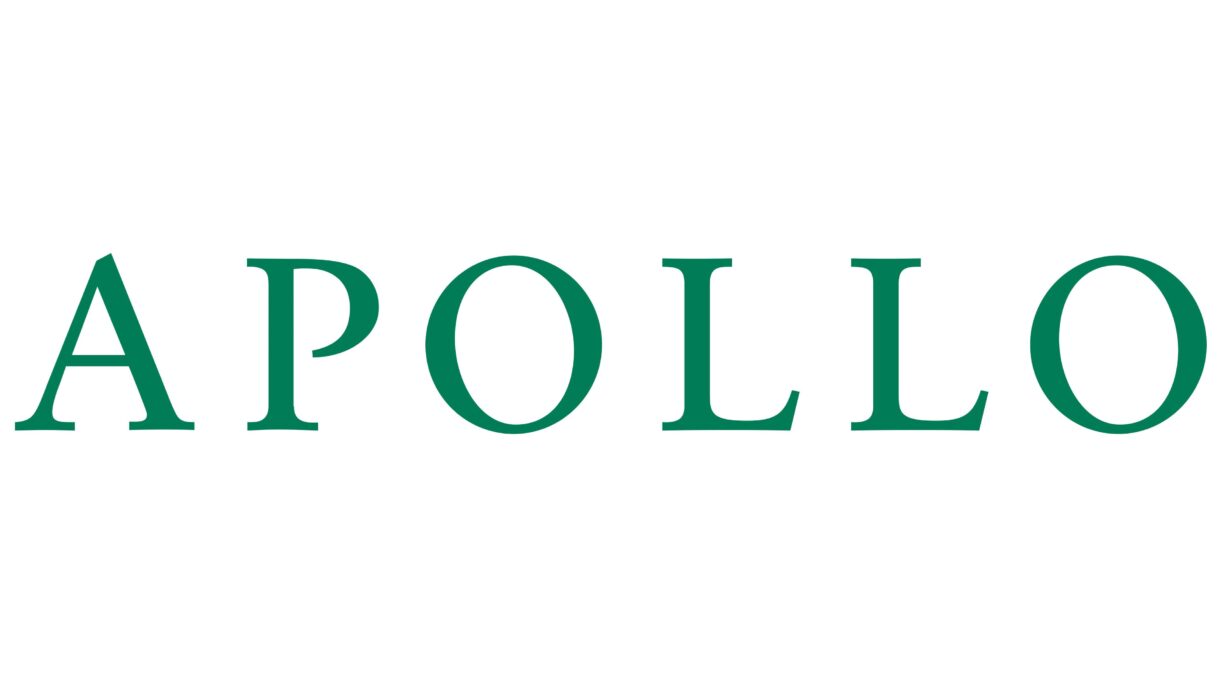In the dynamic world of alternative investments, Apollo Global Management stands as a powerhouse, managing over $840 billion in assets under management (AUM) as of mid-2025. But who truly owns this financial giant? Understanding the ownership of Apollo Global Management is crucial for investors, analysts, and anyone tracking the private equity landscape. As a publicly traded company on the New York Stock Exchange (NYSE: APO), Apollo’s ownership structure blends institutional dominance, significant insider stakes, and a touch of retail interest. This article delves into the layers of Apollo Global Management ownership, exploring its founders’ legacy, major shareholders, and evolving corporate governance. Whether you’re researching “Apollo Global Management shareholders” or seeking insights into its control dynamics, here’s a comprehensive breakdown based on the latest 2025 data.
A Brief History of Apollo Global Management: From Drexel Roots to Global Leader
To grasp who owns Apollo today, it’s essential to trace its origins. Apollo Global Management was founded in 1990 amid the rubble of the junk bond scandal that toppled Drexel Burnham Lambert. Three former Drexel investment bankers—Leon Black, Josh Harris, and Marc Rowan—launched the firm as Apollo Advisors, initially focusing on distressed debt and takeover opportunities. Tony Ressler, another Drexel alum, was part of the early team, though he later co-founded Ares Management in a 1997 spin-off.
The firm’s early strategy capitalized on the 1980s buyout boom, raising its first private equity fund, Apollo Investment Fund L.P., with $400 million in commitments just months after inception. By the 1990s, Apollo had pivoted toward acquiring undervalued assets from government entities like the Resolution Trust Corporation, investing in icons such as Vail Resorts and Samsonite. This period solidified its reputation in distressed investing.
Fast-forward to the 2000s: Apollo navigated the private equity boom and the 2008 financial crisis, raising massive funds like Fund VII ($14.7 billion in 2008) despite setbacks, including losses on retailers like Linens ‘n Things. Expansion into real estate (via Apollo Real Estate Advisers in 1993) and Asia (first office in India, 2008) broadened its footprint.
A pivotal moment came in 2011 when Apollo went public through an initial public offering (IPO) on the NYSE, raising $565 million at $19 per share. This marked a shift from private roots to public accountability. In 2022, Apollo merged with Athene Holding Ltd., its retirement services arm, in an all-stock deal valuing the combined entity at $11 billion. This integration boosted AUM and streamlined operations. By 2025, Apollo’s portfolio spans private equity ($99 billion AUM), credit ($392 billion), and real assets ($46.2 billion), with recent acquisitions like Barnes Group (January 2025) and a majority stake in Bold Productions Services (February 2025) underscoring its aggressive growth.
Today, Apollo ranks 29th in Private Equity International’s PEI 300, a testament to its evolution from distressed debt specialist to diversified alternative asset manager.
Apollo’s Ownership Structure: Public Company with Insider Influence
As a public entity since 2011, Apollo Global Management’s ownership is transparent via SEC filings, but its structure is nuanced. Unlike straightforward single-class shares, Apollo has historically featured multiple share classes, granting founders enhanced voting rights. However, a key 2025 development simplified this: In April, the company announced a transition to a streamlined ownership and voting framework, refreshing corporate governance documents to empower the independent board while maintaining founder alignment.
Current ownership breaks down as follows (based on Q2 2025 filings):
- Institutional Investors: Approximately 62% of shares. These large funds and asset managers form the bedrock of Apollo’s shareholder base, reflecting confidence in its growth trajectory.
- Insiders: Around 35%, a notably high figure for a public alternative manager. This includes executives, directors, and founders, signaling strong skin-in-the-game.
- Retail and Individual Investors: Roughly 3%, with the remainder in public companies or floats.
This distribution—detailed in recent 13F and 13D/G filings—highlights Apollo’s hybrid nature: publicly accessible yet founder-steered. High insider ownership (up to 35%) is a double-edged sword; it aligns management with shareholders but can concentrate control. Recent insider sales, totaling $617 million over the past year, have raised eyebrows, though no major buys were recorded, potentially signaling caution amid market volatility.
Major Shareholders: Institutions and Insiders in Focus
Top Institutional Holders
Institutions dominate Apollo’s equity, holding over 426 million shares collectively (74.57% excluding certain filings). These passive and active investors prioritize long-term value in alternative assets. Key players as of August 2025 include:
- Vanguard Group Inc.: The largest holder, with an estimated 10-15% stake. Vanguard’s index funds, like the Total Stock Market Index Fund, make it a staple for broad-market exposure.
- BlackRock, Inc.: 35.5 million shares (6.30%), per its January 2025 13G filing. As the world’s biggest asset manager, BlackRock’s involvement underscores Apollo’s institutional appeal.
- Capital World Investors: 29.4 million shares (5.20%), updated in an August 2025 filing. This arm of Capital Group favors growth-oriented firms like Apollo.
- State Street Corp.: Around 5-7%, via SPDR ETFs and global funds.
- FMR LLC (Fidelity): Approximately 5-6%, including holdings in funds like Fidelity Blue Chip Growth.
Other notables include Geode Capital Management (3-4%) and Russell Investments (12.86% in some reports, though aggregated). These institutions benefit from Apollo’s fee-related earnings (FRE) growth, which hit $627 million in Q2 2025, up 22% year-over-year.
Insider Ownership: Founders’ Enduring Stake
Insiders own a substantial 20-35% (varying by source, with WallStreetZen pegging 35.05%), valued at $15-17 billion at recent prices. This level fosters accountability but invites scrutiny over sales.
- Leon Black: The top individual holder with 39.5 million shares (6.91%, ~$5.5 billion). Despite resigning as CEO in 2021 amid Epstein-related controversies, Black retains influence as a founder and director. His recent sales, netting $71 million in one transaction, reflect portfolio management rather than divestment signals.
- Marc Rowan: As CEO and Chairman since 2021, Rowan holds a significant undisclosed stake, aligned with performance incentives.
- Josh Harris: Co-founder with a prior stake; he departed in 2022 to pursue sports ventures but retains indirect exposure via legacy holdings (~38 million shares pre-departure).
Other executives, like President Jim Zelter, contribute to the insider pool, ensuring leadership ties to shareholder returns.
Leadership’s Role in Ownership Dynamics
Apollo’s board is majority independent, with a lead independent director overseeing governance. Key leaders include:
- Marc Rowan (Chairman & CEO): Oversees strategy, driving the Athene merger and 2025 acquisitions.
- Jim Zelter (President): Focuses on credit and hybrid value strategies.
- Scott Kleinman & John Zito (Co-Presidents): Lead private equity and real assets.
This team, rooted in the founders’ vision, influences ownership through equity grants and buybacks. The 2025 governance refresh emphasizes board empowerment, reducing potential founder overreach.
Recent Developments Impacting Ownership
2025 has been transformative. Q2 AUM surged 20% to $840 billion, fueled by $70 billion in private equity inflows. Acquisitions like Bridge Investment Group ($1.5 billion, February) and Pension Insurance Corporation ($7.8 billion, July via Athora) expand reach, potentially attracting more institutional capital.
Insider sales persist—$126 million in Q3 alone—but high ownership (20%+) mitigates concerns. The annual meeting on June 6, 2025, approved governance tweaks, enhancing transparency.
Why Ownership Matters for Apollo Investors
Apollo Global Management’s ownership—dominated by institutions like Vanguard and BlackRock, bolstered by insiders like Leon Black—reflects stability and ambition. High insider stakes align interests, while institutional heft provides liquidity. For those querying “who owns Apollo Global Management,” the answer is a collaborative ecosystem: founders set the course, institutions fund the journey, and the public reaps dividends ($0.51 per share in Q2 2025).
As Apollo eyes further Asia expansion (e.g., Seoul office, November 2024), its ownership will evolve, but the core—innovation rooted in 1990s grit—remains. Investors should monitor SEC filings for shifts, especially post-simplification.
In summary, Apollo isn’t “owned” by one entity but thrives on diversified stewardship. This structure positions it for sustained growth in alternatives, making it a compelling watch in 2025 and beyond.
References
- Apollo Global Management – Wikipedia – https://en.wikipedia.org/wiki/Apollo_Global_Management
- Overview :: Apollo Global Management, Inc. (APO) – Investor Relations – https://ir.apollo.com/corporate-governance/overview
- Major shareholders: Apollo Global Management, Inc. – MarketScreener – https://www.marketscreener.com/quote/stock/APOLLO-GLOBAL-MANAGEMENT–118850357/company-shareholders/
- Equity – Apollo Global Management – https://www.apollo.com/strategies/asset-management/equity
- [PDF] 04/25/2025 – Apollo Global Management, Inc. – https://ir.apollo.com/sec-filings/content/0001193125-25-096971/0001193125-25-096971.pdf
- Apollo Global Management, Inc.: Q2 2025 Results Analysis – 8/5/25* – https://www.linkedin.com/pulse/apollo-global-management-inc-q2-2025-results-analysis-faisal-amjad-k7bef
- Insider Holders – Apollo Global Management Inc. – SecForm4.Com – https://www.secform4.com/insider-holders/1858681.html

